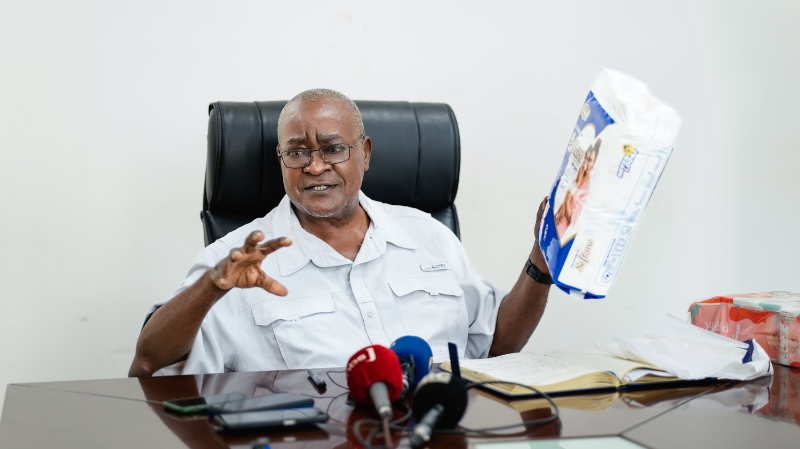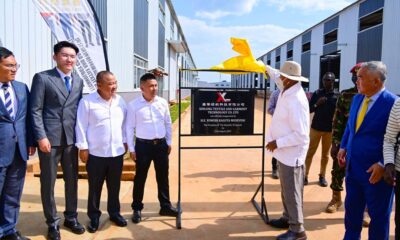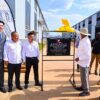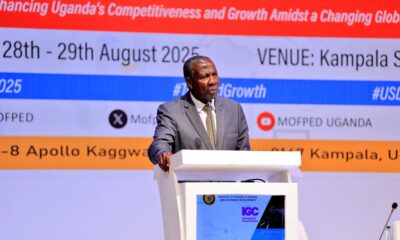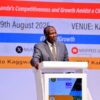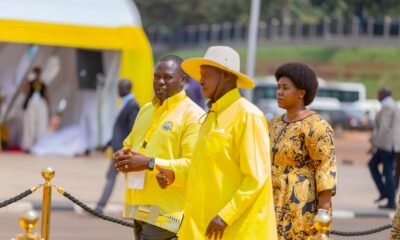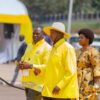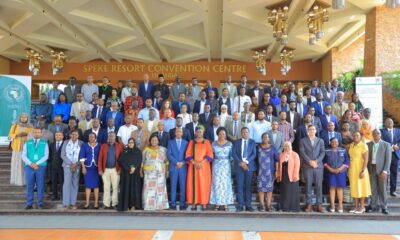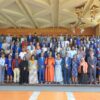Economy
Former VP Bukenya Hails Sino-Mbale Industrial Park as a Job Creation Powerhouse for Uganda
Former Vice President Dr. Gilbert Bukenya has lauded the Sino-Mbale Industrial Park for its significant contribution to job creation and national development, highlighting its pivotal role in transforming Uganda’s economic landscape. Dr. Bukenya, who also serves as a senior presidential adviser on environment, credited President Yoweri Museveni’s long-term vision for the park’s success, noting that despite past “misunderstandings,” the vision is now yielding substantial results, particularly in employment.
During a recent visit to the park, Dr. Bukenya was visibly impressed by the scale of employment opportunities. “When I visited one of the factories in the industrial park, I found over 2,000 young Ugandans busy working,” he stated. He emphasised that many of these employees had only completed primary education, showcasing the park’s ability to provide gainful employment regardless of extensive formal schooling.
“When I visited only the Mbale Industrial Park, they had almost over 4,000 young Ugandans employed. Four thousand in a small park!” Dr. Bukenya exclaimed. “I thought, ‘Oh my God, I wish we had about 20 industrial parks doing the same thing. We should not have any problem with youth unemployment or their capacity to work.”
Dr. Bukenya stressed that job creation, driven by industrialisation and value addition, is paramount for Uganda’s future prosperity. He urged a more positive public discourse, expressing concern about prevailing negative sentiments. “The future of this country is industrialisation, particularly value addition to our raw materials. If we don’t embrace this, our youth will face significant problems,” he warned.
He elaborated on the value addition process at the park, using the textile industry as a prime example. Instead of exporting raw cotton, the park transforms it into threads, which are then woven into cloth. This cloth is subsequently dyed, designed, and cut into finished products such as shirts, trousers, or bed sheets. “What I’m talking about is jobs, jobs, jobs!” Dr. Bukenya declared, underscoring how each step in this sophisticated process creates invaluable employment opportunities for Ugandans.
Luke Wang, director of Tian Tang Group and CEO of Uhome Holdings Uganda Ltd., echoed Dr. Bukenya’s sentiments, drawing compelling parallels between Uganda’s current development trajectory and China’s own economic transformation. Wang attributed China’s rapid growth to its leaders’ “big vision” and their prioritization of infrastructure development—a strategy he sees being effectively mirrored in Uganda today.
Wang also praised Uganda’s free primary education system, highlighting its significant contribution to the workforce’s English proficiency. “I can say 90% or 95% of these people can speak good English because they received this primary education,” he noted, emphasising its importance for attracting and retaining investors.
Furthermore, Wang detailed the park’s commitment to technology transfer and training. “We bring technologies from China, or even machinery from Korea, from Japan, not only from China, but they are the most efficient machines,” Wang explained. “And we teach our people here. We train them to be engineers.” He cited the park’s jeans factory as a prime example, which employs over 2,500 Ugandans with minimal Chinese staff, focusing heavily on training local managers and engineers to run operations independently.
Wang expressed a strong ambition for “Made in Uganda” products to become a symbol of quality and excellence across Africa and beyond. He confidently predicted that with its current visionary approach, Uganda could emerge as East Africa’s manufacturing hub within the next five to 10 years, commending the Ugandan workforce for their intelligence and diligence.
Comments



